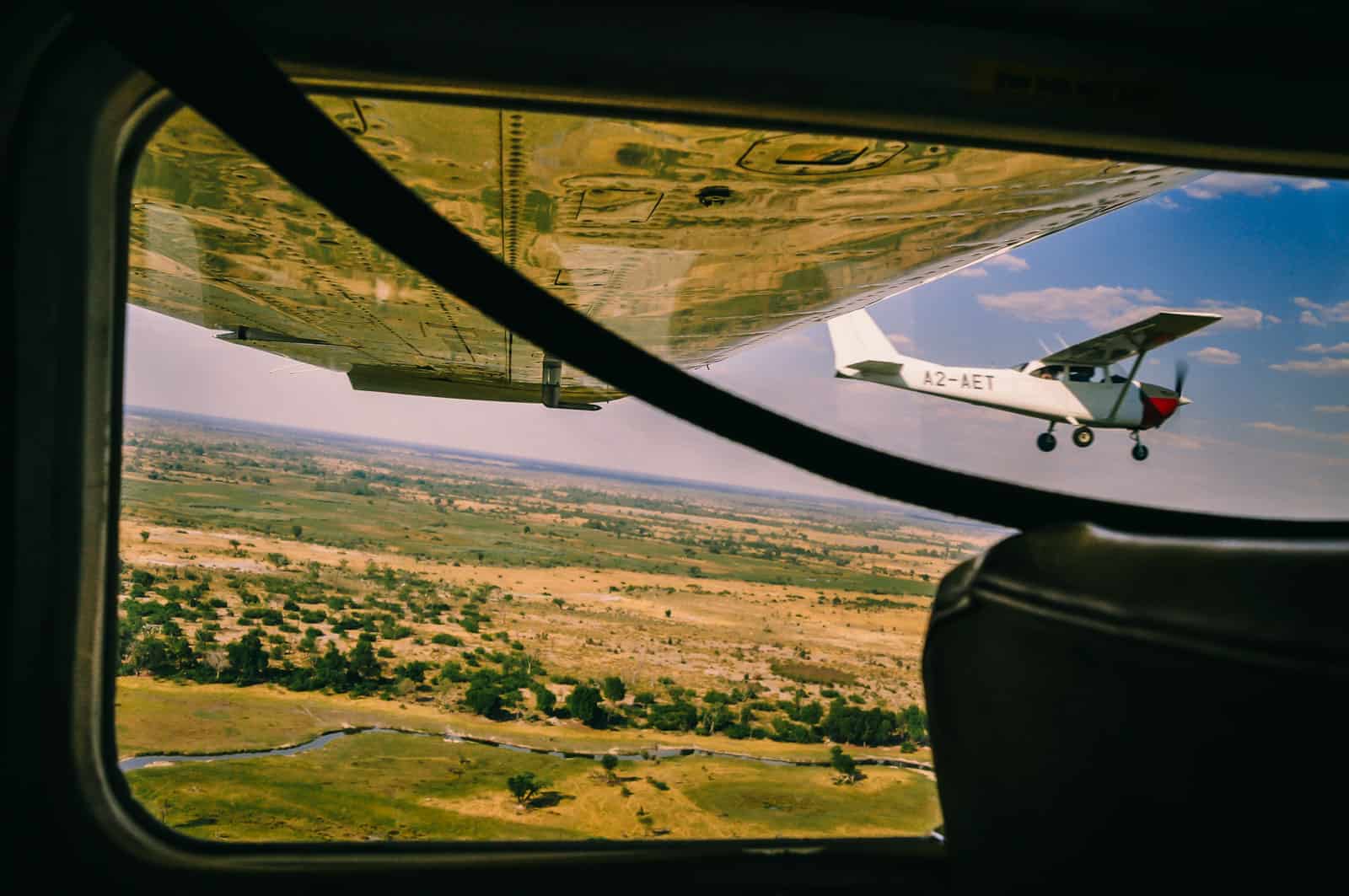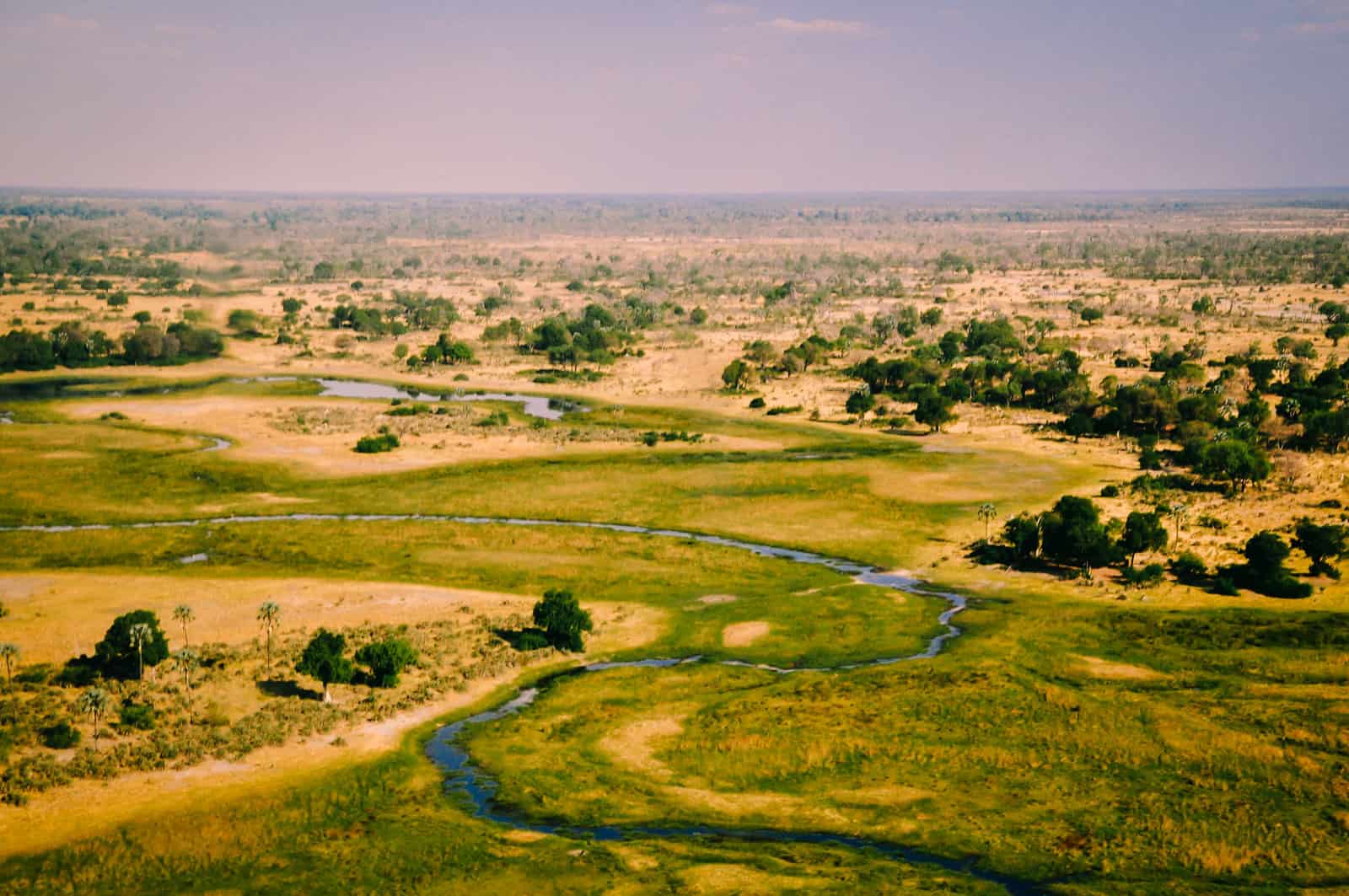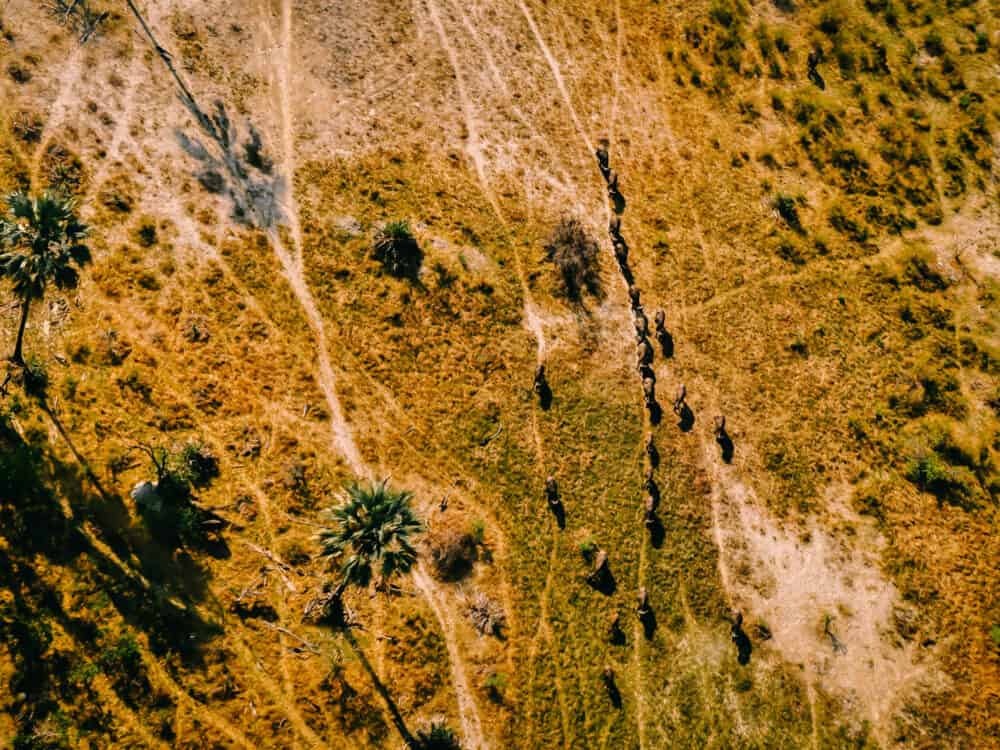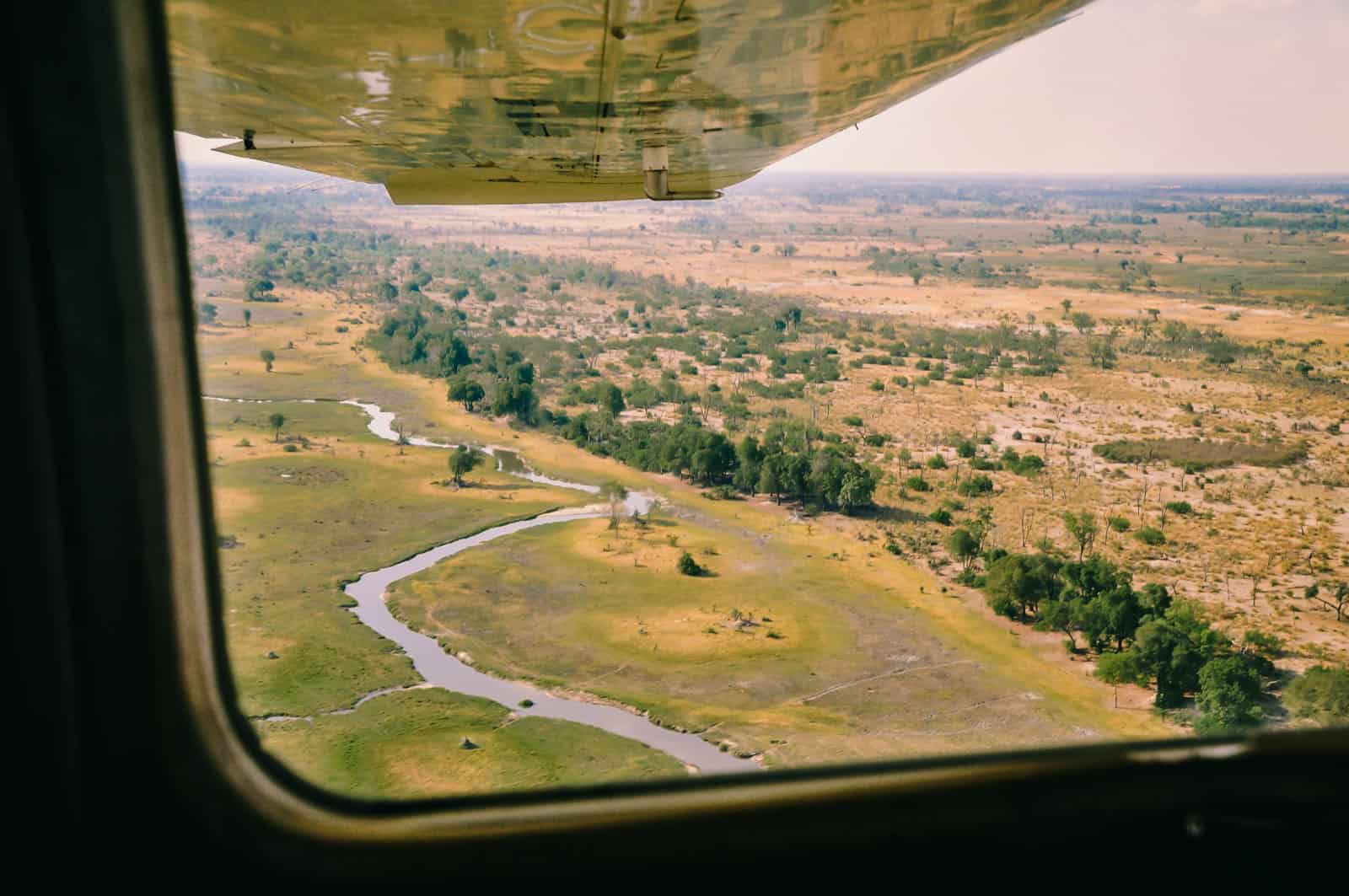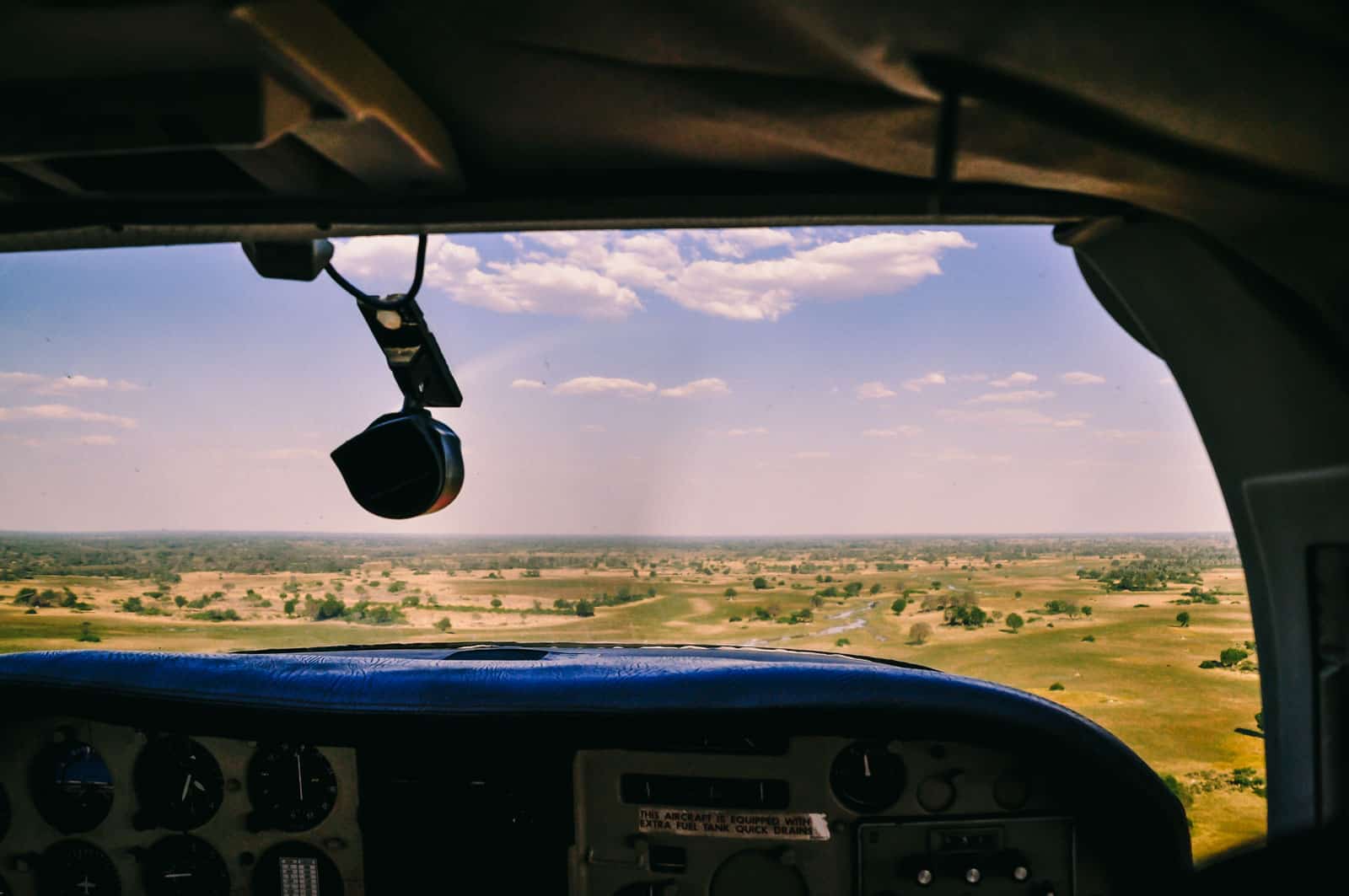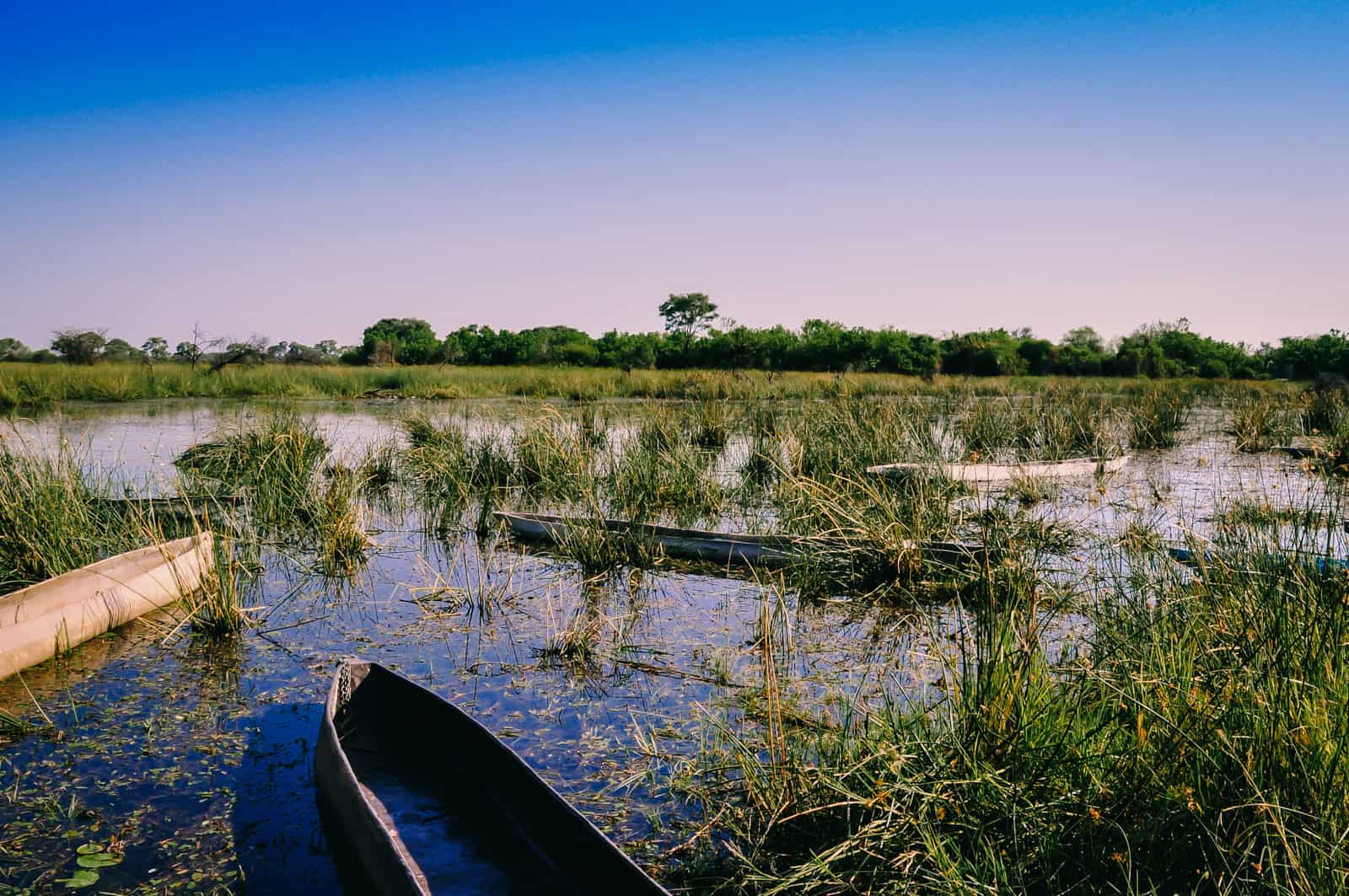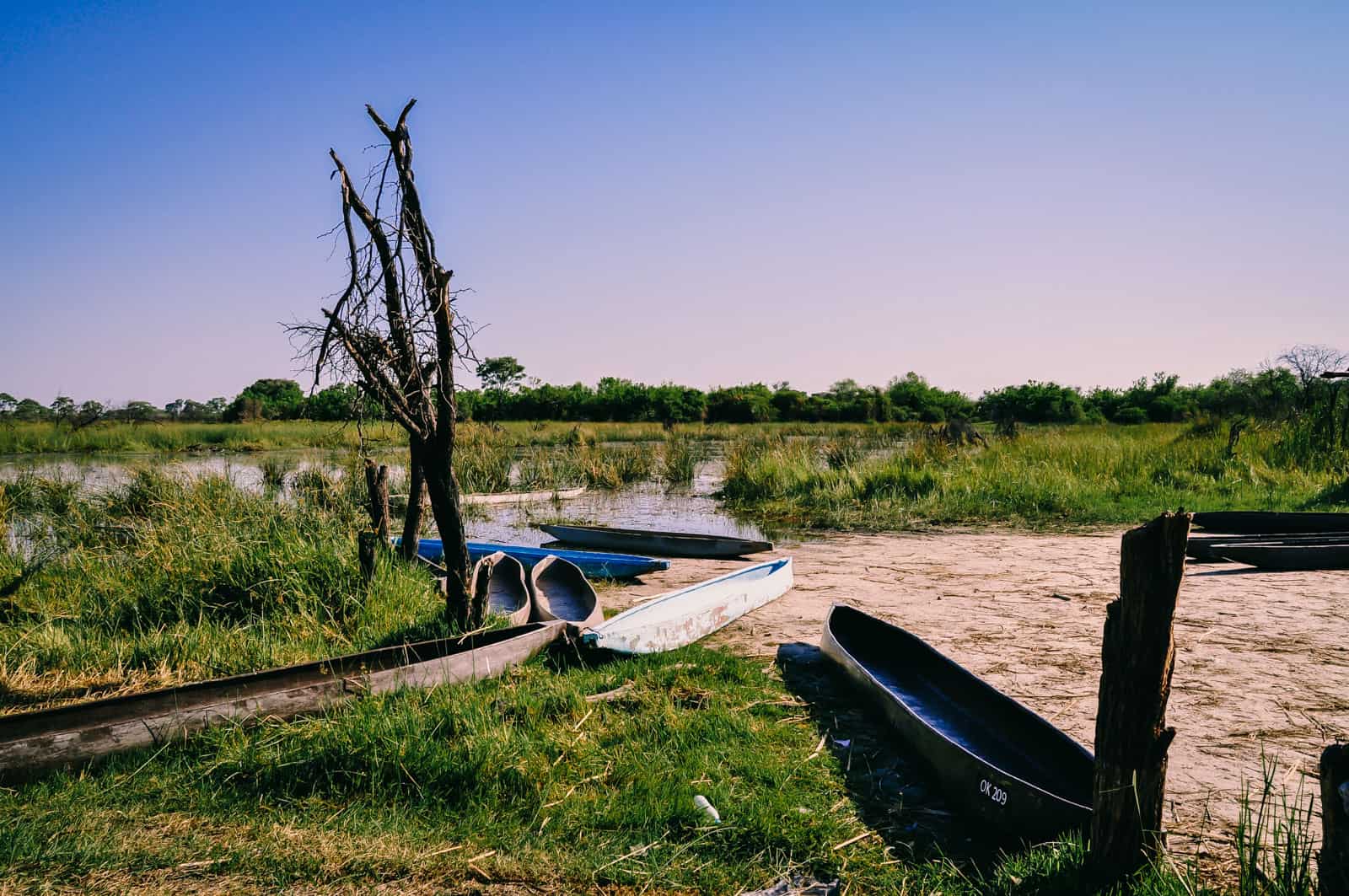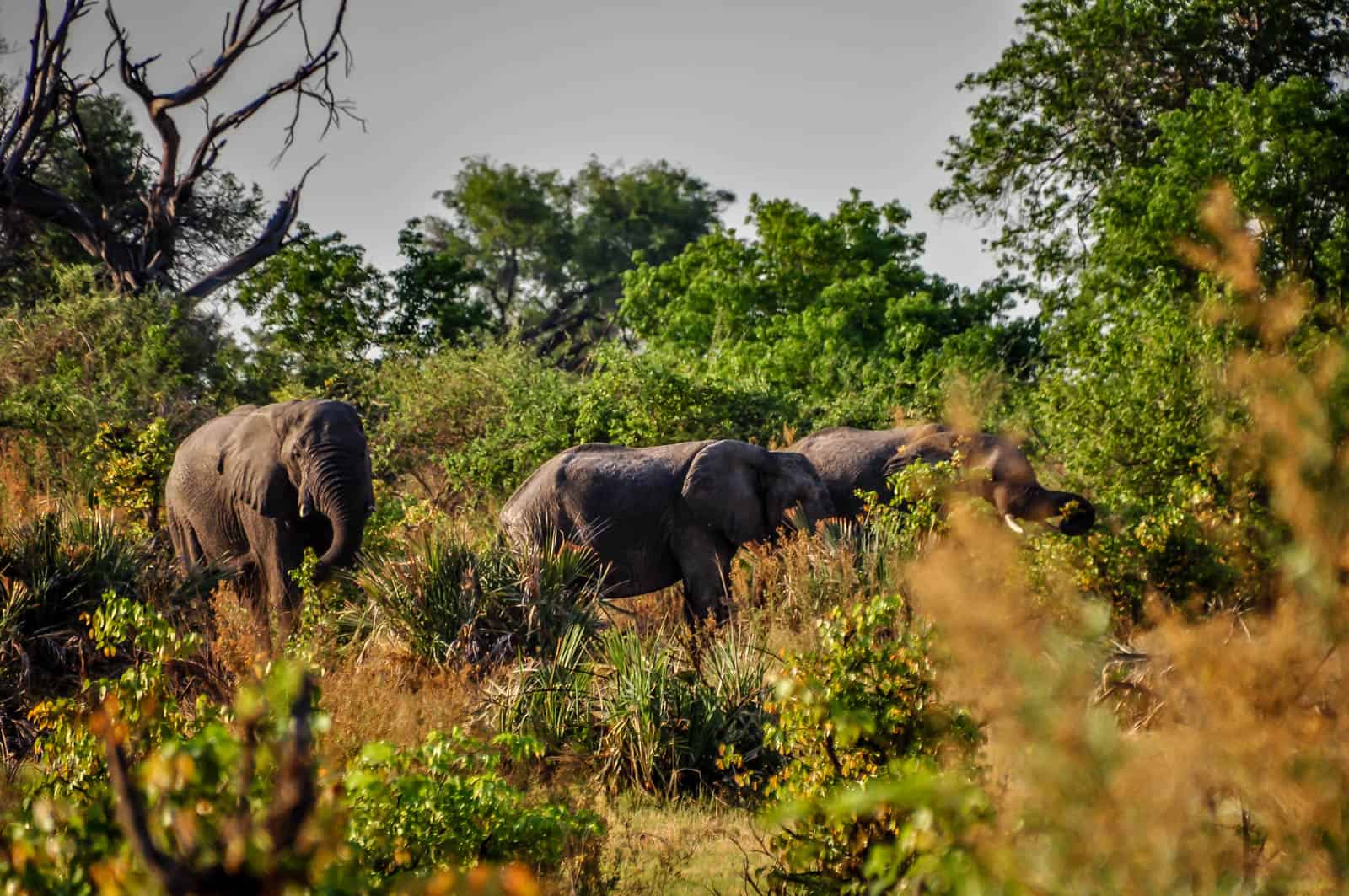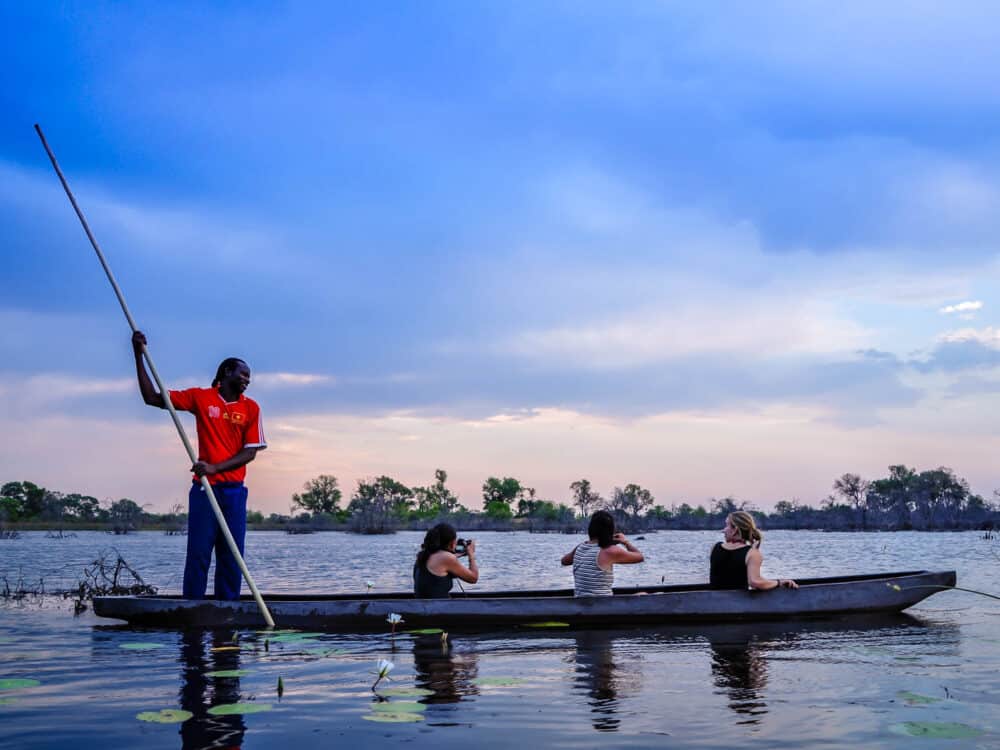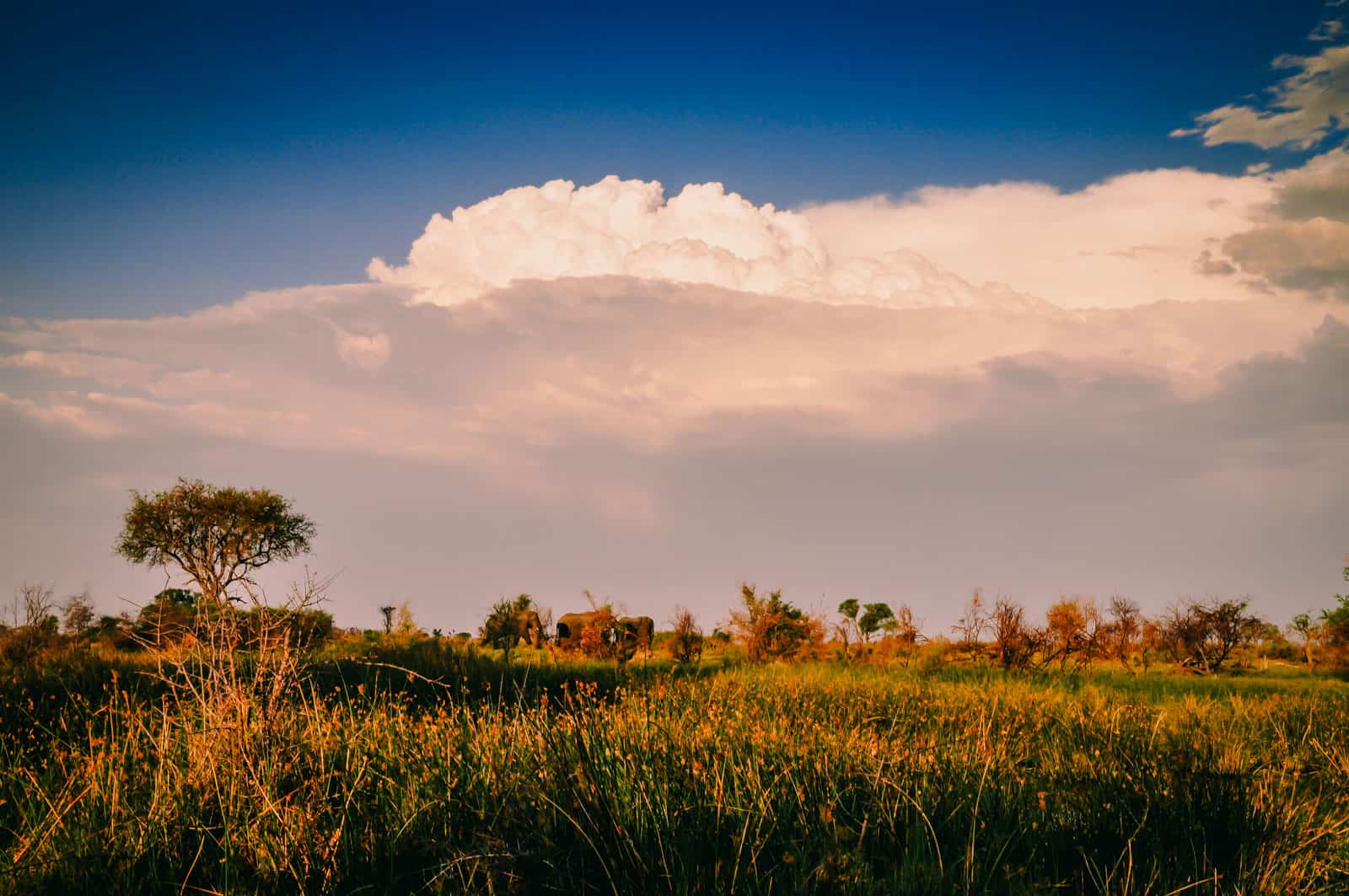Safari | Okavango Delta | Botswana
A Walking Safari in the Okavango Delta
Text | Anninka Kraus
Photography | Tobias Kraus

Botswana
We were promised an unforgettable experience on a two-day trip into the Okavango Delta – an optional activity at an additional cost – and while it was an unforgettable trip indeed, it was totally different to what we had expected. A 50-year old diesel Mercedes truck with drum brakes picked us up for a one-hour drive down dirt roads to a small landing by the water’s edge.
At this point we still thought we were in for two days of observing wild animals in their natural marshland habitat. When we got out of the truck two smaller open-top trucks carrying as many as forty locals in the back screeched to a halt beside us. Men, women, and children jumped off and loaded our equipment (tents, mats, cooking supplies, utensils, and food) and backpacks into traditional mokoros (canoes dug out of trees).
In next to no time we sat two to a mokoro and were joined by a poler who navigated from the back of the boat, standing up with a long stick much like a Venetian gondolier. We didn’t see much sliding through tall reeds gently brushing against the mokoro, except for the hundreds of water lilies floating by to the sound of poles entering and exiting the shallow water with a light splash.
After an hour-and-a-half in the water we went ashore and pitched our tents, mentally preparing for two days bush camping in the middle of nowhere in aggressive heat, without electricity, running water, showers, toilets, or chilled drinks. When at 11am the self-appointed Chief Captain of the camp announced the next activity – a game walk at 5pm – we were at quite a loss of things to do until then.
We played cards, had lunch, and some – on the verge of hyperthermia I am sure – even dared a dip in the half metre high muddy puddle that the chief captain had promoted to a pool. After several failed attempts to enjoy disconnecting from the modern world in the sweltering heat, we were all more than ready for our game walk at five.
Thrilled to finally explore a miniscule pinpoint area of the Delta we observed five live elephants from a distance, and the bleached-out skeletons of their ancestor at close range. Though nice it was not particularly exiting after the proximity we had enjoyed to wildlife in Etosha National Park. After an hour of walking, the Captain called it a day, returning to the camp in full daylight, and by so doing destroyed whatever morale was left over. Everybody likes an easy-going stress-free attitude, but the camp captains here were just plain lazy (which Morrison had predicted).
I have no idea what we had for dinner around the campfire because turning on headlamps attracted an army of sandflies and moths that nobody wanted to add to their indefinable grub (though perhaps that was the point of eating in the dark – we could be fed anything at all and nobody would be able to tell). Next, the Chief Captain lay down the bush toilet (hole in the ground) rules, which immediately stopped everybody eating and drinking.
The rules were:
1. If you absolutely must go (believe me, I’ve never tried harder not having to go) point your flashlight through the mosquito net and hopefully not straight into the face of a lion.
2. Wake your toilet buddy and carefully go for a pee holding hands.
3. Avoid having to do a lengthy number 2 at all costs. Imagine being caught with your pants down when a jackal starts howling or a scorpion strolls past.
4. Never hang your butt over the hole without pointing your torch at it first. It’s a disgusting sight surely but preferable to overlooking a king cobra slithering in the shit waiting for fresh meat, which happened the year before and scared the pants off a young couple (no pun intended).
We got up at 5:30am the next morning, highly motivated for the 4-hour game walk announced for 6am. Since we saw only elephants the day before (an hour was probably too short to expect more) we were ready early and followed an unenthusiastic Captain across the swampy terrain.
Unfortunately, we saw no animals at all and while I understand that wildlife is obviously wild and not the least bit interested in parading around in front of tourists, the lack of customer service and enthusiasm of the crew was terribly disappointing. At 9am, after three hours of futile walking the Captain announced that he was now feeling too hot and needed a siesta until 5pm. Sometime after lunch we were bored enough to try out the muddy puddle, but the water was shallow, warm (this was probably the first time in my life I would have preferred cold water), and its reddish tint worrying.
The highlight of that day – a highlight at long last – was a mokoro trip in the late afternoon during which we came upon a herd of hippos almost fully submerged in the water. Our polers steered us closer but maintained a safe distance from the hippos as they can become dangerous when they feel threatened and will also attack humans. I find Hippos quite hideous with their grey, wrinkled skin and crumpled faces, and why almost everyone thinks that they are clumsy and gentle, I will never understand.
We were thrilled to watch them wriggle their ears, yawn, and fart, but unfortunately the Captains aborted the trip shortly after seeing the hippos on the grounds that we had…well…’seen the hippos’, but they did perform beautiful tribal songs for us after dinner around the campfire.
Listening to African melodies and watching them dance against the background of flickering red flames in the eerie blackness of the bush was definitely among the highlights of this excursion into the Delta. That was until halfway through the performance when a scorpion threw everybody into panic and sent some people (me included) off to bed.
